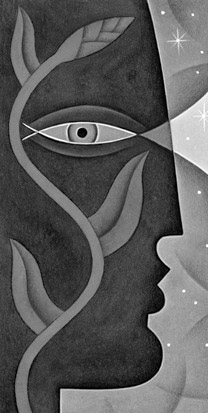AARON

Effective teamwork happens when each team member uses his or her special skills. Ideally each member’s strengths will contribute something important to the team effort. In this way, members make up for one another’s weaknesses. Aaron made a good team with Moses. He provided Moses with one skill Moses lacked—effective public speaking. But while Aaron was necessary to Moses, he needed Moses as well. Without a guide, Aaron had little direction of his own. There was never any doubt as to who God’s chosen and trained leader was. The pliability that made Aaron a good follower made him a weak leader. His major failures were caused by his inability to stand alone. His yielding to public pressure and making an idol was a good example of this weakness.
Most of us have more of the follower than the leader in us. We may even be good followers, following a good leader. But no leader is perfect, and no human deserves our complete allegiance. Only God deserves our complete loyalty and obedience. We need to be effective team members in using the skills and abilities God has given us. But if the team or the leader goes against God’s Word, we must be willing to stand alone.
Strengths and accomplishments |
|
Weaknesses and mistakes |
|
Lessons from his life |
|
Vital statistics |
|
Key verses |
“And the anger of the LORD was kindled against Moses, and he said, Is not Aaron the Levite thy brother? I know that he can speak well. And also, behold, he cometh forth to meet thee: and when he seeth thee, he will be glad in his heart. . . . And he shall be thy spokesman unto the people: and he shall be, even he shall be to thee instead of a mouth, and thou shalt be to him instead of God” (Exodus 4:14, 16). |
Aaron’s story is told in Exodus—Deuteronomy 10:6. He is also mentioned in Hebrews 7:11.